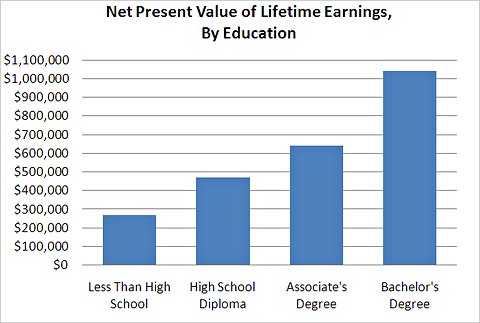College is expensive these days. Yet, most universities argue an undergraduate education is actually worth much more than what students pay for it. Clearly there is an emotional logic to this argument. But what do the numbers tell us?
In today's episode, Planet Money takes a behind the scenes look at Duke's costs and considers the university's case that $60,000 a year is actually a discount.
Get the HTML for these questions.
<ol>
<li>Lafayette has the number 2 most beautiful what in the country?</li>
<li>What is not in Tom’s script?</li>
<li>Where can you find the price of admissions?</li>
<li>What does a year at Lafayette cost?</li>
<li>What did it cost in 2001? How much did it increase?</li>
<li>Prices have been rising faster than ______.</li>
<li>What kind of colleges are the journalists investigating?</li>
<li>What two words were emphasized by the admissions officer?</li>
<li>How much financial aide does Tom get?</li>
<li>What number do you really want for the price of college?</li>
<li>What the difference between “sticker price” and “net price?”</li>
<li>What is one of the most important tools that admissions officers have?</li>
<li>What is the primary reason for giving merit scholarships?</li>
<li>What’s the name of Michelle’s novel?</li>
<li>Which shirt in the example is more attractive? Why?</li>
<li>“You can’t put a price on education.” Can you?</li>
<li>What does having a high “sticker price” allow colleges to do?</li>
<li>How are merit scholarships related to the idea of “opportunity cost?"</li>
</ol>
Readings
As you read, lookup any words you don't know and add them to your notes.
These questions should be answered in a format this is shared with me:
Google Drive for full credit or Codepen for extra credit.
Textbook
Macroeconomics for Today
-
Explain why scarcity leads to opportunity cost. Give an example from your own life.
Suppose a advertises a "free car" contest. Is this car free because the winner pays zero for it?
When you finish, think like an economist:
- How are merit scholarships related to the idea of "opportunity cost?"
- Attending college is expensive, time consuming, and it requires effort. So why do people decide to attend college?

